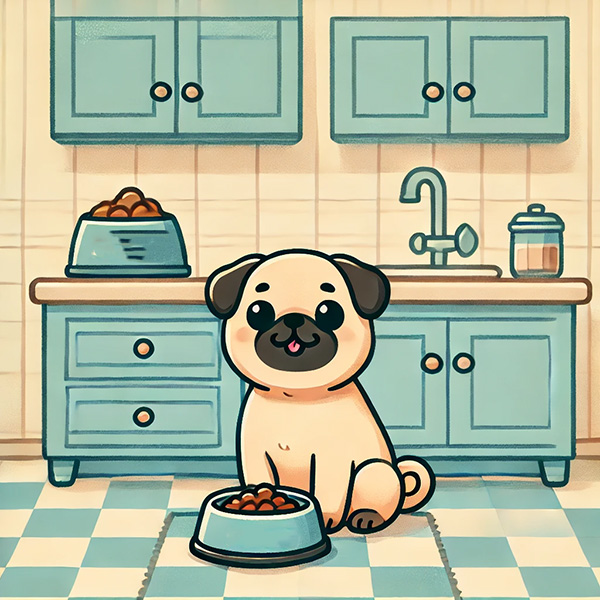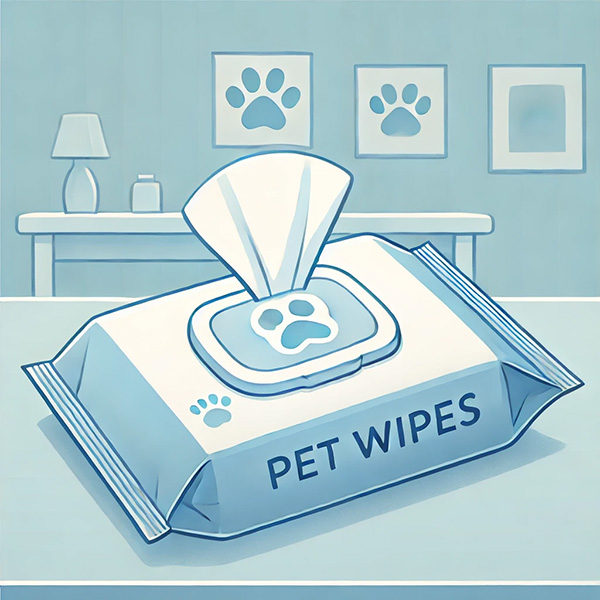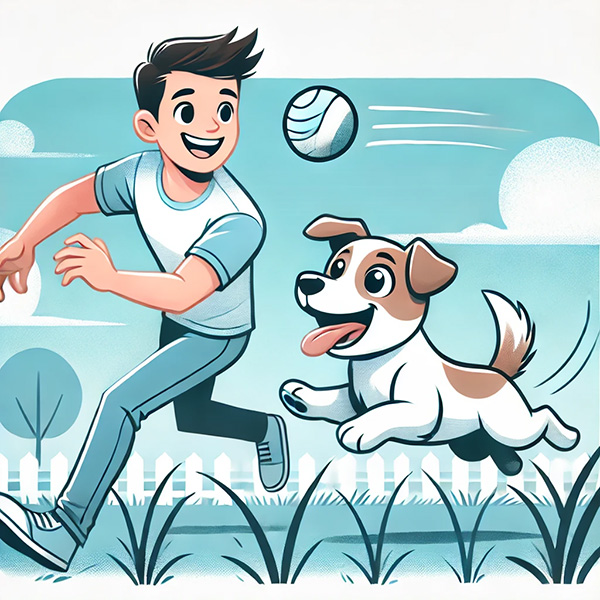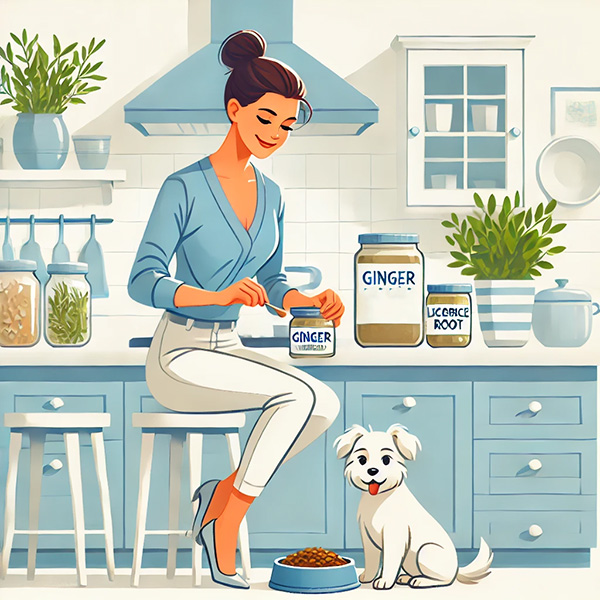A dog’s digestive health is crucial for their overall well-being, and constipation can disrupt this balance. Recognizing the symptoms of dog constipation is the first step in learning how to make a constipated dog poop quickly and maintain your dog's digestive health.
Regular bowel movements are crucial for your dog's digestive health. Without consistent elimination, waste can accumulate, leading to toxin buildup in the body. This can lead to long-term health concerns, making it vital for dog owners to address constipation as soon as it arises.
Assessing the Severity of Your Dog's Constipation
Not all cases of dog constipation are cause for alarm. If your dog skips a bowel movement for a day but still seems happy and healthy, it may be a mild case that can be resolved with a few simple dog constipation home remedies like increasing fiber in your dog's food. If constipation lasts longer than 48 hours or is accompanied by symptoms like vomiting, lethargy, or a loss of appetite, it’s important to seek advice from a veterinarian.
Understanding the difference between mild and severe dog constipation is key. Professional veterinary care is essential if your dog's constipation worsens or shows no signs of improvement despite your efforts. Neglecting constipation can lead to worsening symptoms, adversely affecting your dog's digestive health and overall wellness.
8 Remedies to Make a Constipated Dog Poop Quickly
Increase Fiber Intake

Fiber plays a crucial role in regulating your dog's digestive system. It aids in softening the stool and adding bulk, making it easier for your dog to pass and promoting regular defecation. A high-fiber diet, including wet or canned dog food, helps regulate the digestive system by adding bulk to the stool.
Foods such as pumpkin, sweet potato, and green beans are great sources of fiber that can be easily incorporated into your dog's diet. These foods are tasty and gentle on the stomach, helping move things along smoothly through the dog’s digestive tract. Some dog parents may even use prescription dog food designed for digestive health or include small amounts of canned food to increase fiber intake.
When incorporating fiber into your dog's food, start small. For example, 1-2 tablespoons of canned pumpkin mixed into their wet food can be very effective. Always monitor how your dog eats and responds, adjusting the amount to avoid occasional constipation.
Proper Hydration
Water is vital for proper digestion, as it helps maintain soft stool and facilitates easier elimination, thereby preventing constipation. Without adequate hydration, your dog’s stool can become dry and hard, leading to constipation and slowing down the digestive tract.
If your dog isn’t drinking enough fresh water, try offering it through creative methods. Many pet parents find success using a pet water fountain, encouraging most dogs to drink more. You can also add a splash of low-sodium broth or apple cider vinegar to their water, enticing them to stay hydrated and ensuring normal stool consistency.
Exercise and Physical Activity

Regular exercise helps stimulate your dog’s digestive system. It gets the muscles moving and promotes healthy circulation, which helps with regular elimination.
Taking your dog for a brisk walk, engaging in active play, or even swimming can help stimulate bowel activity. The key is to keep them moving.
Massage Techniques
Massaging your dog’s abdomen can help stimulate healthy bowel movements and relieve dog constipation. Start by gently pressing your hands against your dog’s stomach and moving them in a circular motion. This technique encourages movement in the dog’s digestive tract.
Focus on the lower abdomen, just above the pelvis, where the intestines are located. Gentle pressure here can help get dog poop quickly and ease trouble pooping, especially in constipated dogs.
You can perform this massage a couple of times per day, especially after meals or walks, to encourage passing stool and support healthy digestion. For more persistent cases like chronic constipation, consult a veterinarian and consider adjusting your pup's diet with options like canned food, wet food, or even prescription dog food. Incorporating home remedies such as pumpkin puree or a small amount of olive oil can also help.
Use of Canned Pumpkin
Canned pumpkin is a natural fiber source that aids in regulating bowel movements. Its high water content softens stool, making it easier to pass. Dog parents often use this as one of their go-to home remedies for constipation.
Start with 1-2 tablespoons of plain canned pumpkin mixed into your dog’s food. Be sure to use plain pumpkin without added sugar or spices, and avoid using pumpkin pie filling.
Olive Oil or Coconut Oil
Olive oil and coconut oil both serve as natural lubricants for the digestive tract. They help soften stool and can promote easier passage through the dog’s gut.
Add one teaspoon of olive or coconut oil to your dog’s food daily. Many dog parents use this gentle laxative with great results. Be careful not to use too much, as excessive oil can lead to diarrhea or interfere with regular bowel movements.
Use of Wet Wipes for Stimulation

Wet wipes can mimic mother dogs' natural stimulation to their puppies, encouraging a stimulating bowel movement. This method mimics what other dogs experience as pups when mother dogs stimulate their belly frequently.
Gently wipe your dog’s anus with a damp cloth or unscented baby wipe, stimulating the area to promote a bowel movement. This approach can be beneficial for dogs that have difficulty passing stool.
Ice Cube Stimulation Method
Ice cubes can be used to trigger a bowel movement by gently inserting them against your dog’s anus. The cold temperature stimulates the muscles in the rectum.
Make sure to use a clean ice cube and apply only gentle pressure. Avoid using this technique too often, and if your dog appears uncomfortable, discontinue immediately.
Home Remedies You Can Try Today
There are several safe and effective home remedies that dog parents can try to help relieve dog constipation and encourage dog’s bowel movements:
Psyllium Husk: A natural fiber supplement that adds bulk to your dog’s stool and helps them pass stool more easily.
Aloe Vera Juice soothes the digestive tract, promoting smoother bowel movements and aiding in the treatment of constipation.
Green Beans: These are high in fiber and easy to incorporate into your dog’s food, helping to stimulate regular bowel movements.
Some dog parents also experiment with adding a small amount of apple cider vinegar to their dog's food to encourage bowel movements. In addition, incorporating canned food into your adult dog's diet can help soften stools, making it easier for them to pass.
Commercial Solutions for Dog Constipation

Over-the-Counter Stool Softeners
Stool softeners can help treat constipation in adult dogs with mild symptoms, but they should be used cautiously. While effective, overuse can lead to dependency, making it harder for your dog to achieve normal bowel movements independently.
Always consult your vet before using any over-the-counter stool softeners to ensure safe usage and the correct dosage, particularly for dogs of any age and size.
Vet-Prescribed Laxatives
If home remedies and over-the-counter options don’t work, your vet may prescribe a stronger laxative to relieve your dog’s constipation.
Laxatives should only be used under the guidance of a veterinarian to prevent complications like dehydration or electrolyte imbalances.
High-Fiber Dog Foods
Many pet food brands offer high-fiber options specifically formulated for digestive health. These can help stop constipation from returning.
Transitioning to a high-fiber diet can encourage regular bowel movements and enhance overall digestive health.
Behavioral Training to Encourage Regular Bowel Movements
Establish a Routine
Consistency is key in preventing constipation. Feeding your dog at the same time each day and setting up regular bathroom breaks can support their digestive health.
Set feeding and potty times and stick to them. With time, your dog's body will adjust to the routine, which can help prevent constipation.
Use of Potty Cues
Teaching your dog to respond to potty cues such as "go potty" can help them recognize when it's time to relieve themselves.
Encourage your dog by using positive reinforcement, such as treats or praise, when they go potty on command.
Preventing Future Constipation in Dogs

Balanced Diet
Maintaining a balanced diet with proper fiber and hydration levels is crucial for preventing constipation in adult dogs. Adding canned food or high-fiber options to your dog's meals can help keep their stools soft and regular. Foods like apple cider vinegar can also support digestion. Ensuring your dog has access to fresh water is essential for promoting healthy bowel movements. Fiber-rich foods and proper hydration are essential for treating constipation and preventing future issues.
Regular Exercise
Consistent exercise is essential for maintaining your dog's digestive health. Make sure your dog receives ample physical activity through daily walks and play sessions. This not only stimulates the digestive system but also contributes to the production of healthy stools. For older dogs, gentle exercise can still significantly impact their digestion and reduce the risk of constipation.
Routine Vet Checkups
Regular vet visits are important for catching any underlying health conditions that might lead to more severe constipation. Issues like enlarged anal glands or passing stool irregularities can often be identified early. Vets can provide guidance on diet adjustments, including human foods that should be avoided, and suggest safer alternatives to keep your dog healthy.
Alternative Treatments

Acupuncture for Constipation Relief
Acupuncture can be an effective way to stimulate the dog’s digestive system and help make a dog poop quickly, especially in cases of chronic constipation. This alternative treatment helps regulate dog's bowel movements and can provide relief when other conventional treatments fail. Adult dogs and dogs age with long-standing digestive issues, such as enlarged anal glands, can particularly benefit from acupuncture to support passing stool more comfortably.
Acupuncture should be considered if standard treatments, like canned food adjustments or apple cider vinegar additions, don’t provide sufficient relief. It’s a viable option for dog parents looking for additional methods for treating constipation naturally.
Herbal Supplements
Herbal supplements like ginger and licorice root are recognized for their digestive advantages and can assist in alleviating constipation in dogs. These natural remedies promote healthy dog poop quickly and can aid in a dog’s bowel movements without resorting to harsher solutions like the ice cube method. Supplements can often be a safer option compared to some human foods, which might lead to digestive problems.
Always consult your vet before adding herbal supplements to your dog’s diet to ensure safety and effectiveness, particularly in adult dogs or dogs with existing digestive concerns.
